by Robert Lowe
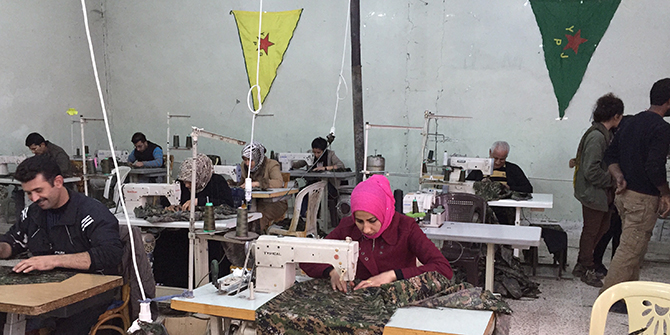
The announcement of a federal system for Rojava (Western Kurdistan) in March 2016 was notable. Not just because it strengthens Kurdish autonomy in Syria and provides a new model for local government but also because of the appearance of a new geographical term with no real pedigree: ‘Northern Syria’.
Amidst the patchwork fragmentation of territories and forces fighting Syria’s civil war, the Kurds have come up with yet another clever new idea. Northern Syria is significant because it is not merely wishful ideology; it is an idea backed by a militia on the offensive and an autonomous government which is developing firm roots. In proclaiming ‘Northern Syria’, the Kurds have made a subtle and thoughtful statement of their intent to govern an area larger than that usually considered ‘Kurdish’.
The term emerged formally in March 2016 when the Constituent Assembly in Rojava (Western Kurdistan) announced a new democratic federal system for the territory of ‘Rojava – Northern Syria’. Previously, only the term ‘Rojava’ had been used, which itself is of very recent origin but has quickly become recognised on the map of Syria.
Rojava is a problematic term. It is heavily ethnically loaded, being a Kurdish word which designates Kurdish areas of Syria in reference to the four other parts of greater Kurdistan across the Middle East. The Kurdish-majority districts of Syria are also home to non-Kurdish populations: Arabs, Turkmen, Assyrians and others. The administration in Rojava is very keen to show that it is tolerant and inclusive of these minorities and it would be hypocritical for a long-suppressed minority to dominate other minorities.
The Kurds in Rojava are also short of friends. In a deeply hostile neighbourhood, and any support they can gain internationally is vital. The Kurds are well aware of the need to satisfy international concerns about their ethnic domination by affirming their values of equality and power-sharing (and, in the Kurdish view, these are far superior to anything offered by other actors in the war). Thus, employing the name ‘Northern Syria’, plays to this need for international backing.
The other probable reason for the appearance of Northern Syria is more awkward for the Kurds. Through their military gains against Islamic State and other jihadist groups, the Kurds have recently acquired territory which is clearly not ‘Kurdish’. To include these in Western Kurdistan would be provocative and again hypocritical, not least because the non-Kurdish populations may not welcome being under Kurdish control. The purely geographical term ‘Northern Syria’ de-ethnicizes the designation of the entity.
This processes of de-ethnicizing the Kurdish project is also seen in the creation of the Syrian Democratic Forces (SDF) – an alliance of Kurdish and non-Kurdish militias – in 2015. While the YPG Kurdish militia continues to dominate on the ground, it is useful to present the SDF as a multi-ethnic and multi-sectarian organisation worthy of international backing.
Throughout the Syrian war, the Kurds of the PYD faction have been opportunistic and highly effective. Their invention of new names and terms reflects this nimble approach which helps them stay ahead of the game. The appearance of Northern Syria in the spring of 2016 is the latest example of this. It may have lasting significance as a ploy which helps the Kurdish project consolidate its gains in non-Kurdish parts of Syria.
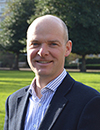 Robert Lowe is the Deputy Director of the Middle East Centre. He joined the Centre when it opened in 2010. Previously, Robert was Manager and Research Fellow, Middle East and North Africa Programme, Chatham House. He held a Research Fellowship from the Leverhulme Trust from 2008 to 2010 and was an Honorary Fellow at the Institute of Arab and Islamic Studies, University of Exeter, from 2008 to 2010.
Robert Lowe is the Deputy Director of the Middle East Centre. He joined the Centre when it opened in 2010. Previously, Robert was Manager and Research Fellow, Middle East and North Africa Programme, Chatham House. He held a Research Fellowship from the Leverhulme Trust from 2008 to 2010 and was an Honorary Fellow at the Institute of Arab and Islamic Studies, University of Exeter, from 2008 to 2010.



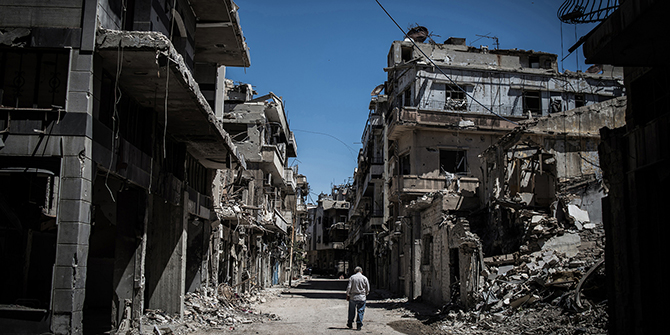

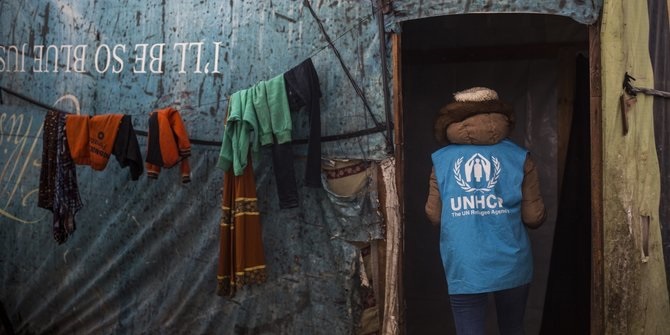
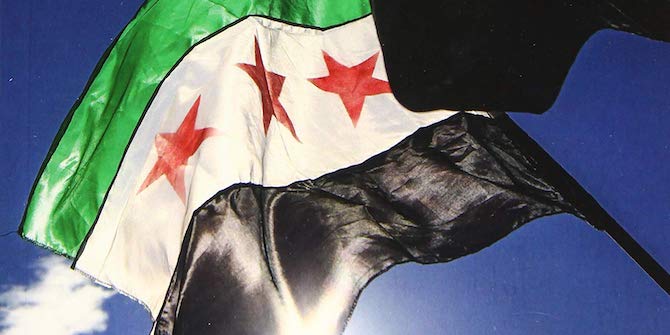
Great insight, thanks for sharing.